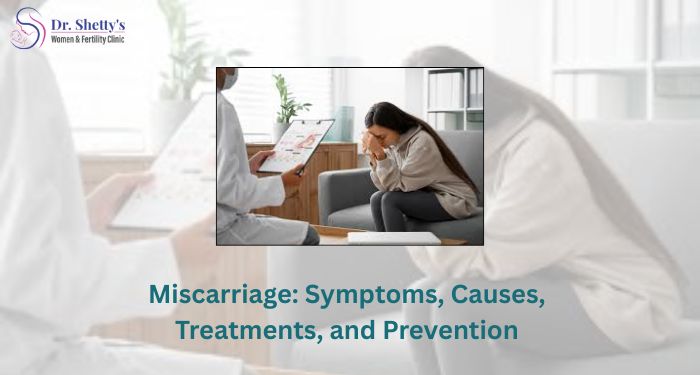Miscarriage, also known as spontaneous abortion, is the loss of a pregnancy before 20 weeks. Experiencing a miscarriage can be emotionally and physically challenging, and it’s important to understand the symptoms, causes, treatments, and preventive strategies. Women in Kharadi and surrounding areas seeking expert care can consult a gynecologist in Kharadi to ensure proper evaluation and support.
Symptoms of Miscarriage
Recognizing early signs of miscarriage can help women seek timely medical care. Common symptoms include:
- Vaginal bleeding or spotting, often accompanied by clots
- Cramping or abdominal pain, similar to menstrual cramps
- Back pain or lower abdominal discomfort
- Sudden decrease in pregnancy symptoms like nausea or breast tenderness
- Passage of tissue or fluid from the vagina
It’s essential to contact your gynecologist in Kharadi if any of these symptoms occur, as early intervention can prevent complications.
Causes of Miscarriage
Several factors can lead to miscarriage, and sometimes it may happen without a clear reason. Common causes include:
- Chromosomal abnormalities – Genetic issues in the embryo are the most frequent cause.
- Hormonal imbalances – Conditions like polycystic ovary syndrome (PCOS) or low progesterone levels can contribute.
- Uterine abnormalities – Issues like fibroids, scar tissue, or an abnormally shaped uterus.
- Infections – Bacterial, viral, or parasitic infections during pregnancy.
- Lifestyle factors – Smoking, excessive alcohol consumption, or uncontrolled stress.
- Medical conditions – Diabetes, thyroid disorders, or autoimmune diseases.
- Advanced maternal age – Risk increases after the age of 35.
Consulting a trusted gynecologist in Kharadi can help identify underlying risk factors and guide proper management.
Treatment Options for Miscarriage
Treatment depends on the type and stage of miscarriage. Medical options include:
- Expectant Management: In some cases, the body naturally expels pregnancy tissue without medical intervention.
- Medication: Drugs may be prescribed to help expel tissue safely.
- Surgical Procedures: Procedures like dilation and curettage (D&C) are performed to remove remaining tissue if necessary.
Emotional support and counseling are equally important, as miscarriage can have a significant psychological impact. A compassionate gynecologist in Kharadi can provide both medical and emotional guidance.
Preventing Miscarriage
While not all miscarriages are preventable, certain measures can reduce the risk:
- Regular prenatal care: Early and consistent monitoring can detect potential issues.
- Healthy lifestyle choices: Balanced diet, proper hydration, avoiding smoking and alcohol.
- Manage chronic conditions: Keep diabetes, thyroid disorders, or other health issues under control.
- Avoid stress: Practice mindfulness, yoga, or meditation.
- Maintain a healthy weight: Both underweight and overweight women may have increased risk.
A gynecologist in Kharadi can provide personalized guidance for prevention based on individual health history.
Emotional Support After Miscarriage
Experiencing a miscarriage can bring grief, anxiety, and emotional stress. Seeking counseling or joining support groups can help women cope. Family support, self-care, and professional guidance from a gynecologist in Kharadi play a key role in emotional recovery.
Conclusion
Miscarriage is a deeply personal experience that requires medical attention, emotional support, and preventive care. Recognizing symptoms early, understanding causes, and seeking treatment from a trusted gynecologist in Kharadi ensures better health outcomes and emotional well-being.
If you are experiencing symptoms of miscarriage or want guidance on prevention, don’t hesitate to consult a professional gynecologist. Timely care can make a significant difference in your physical and emotional recovery.

